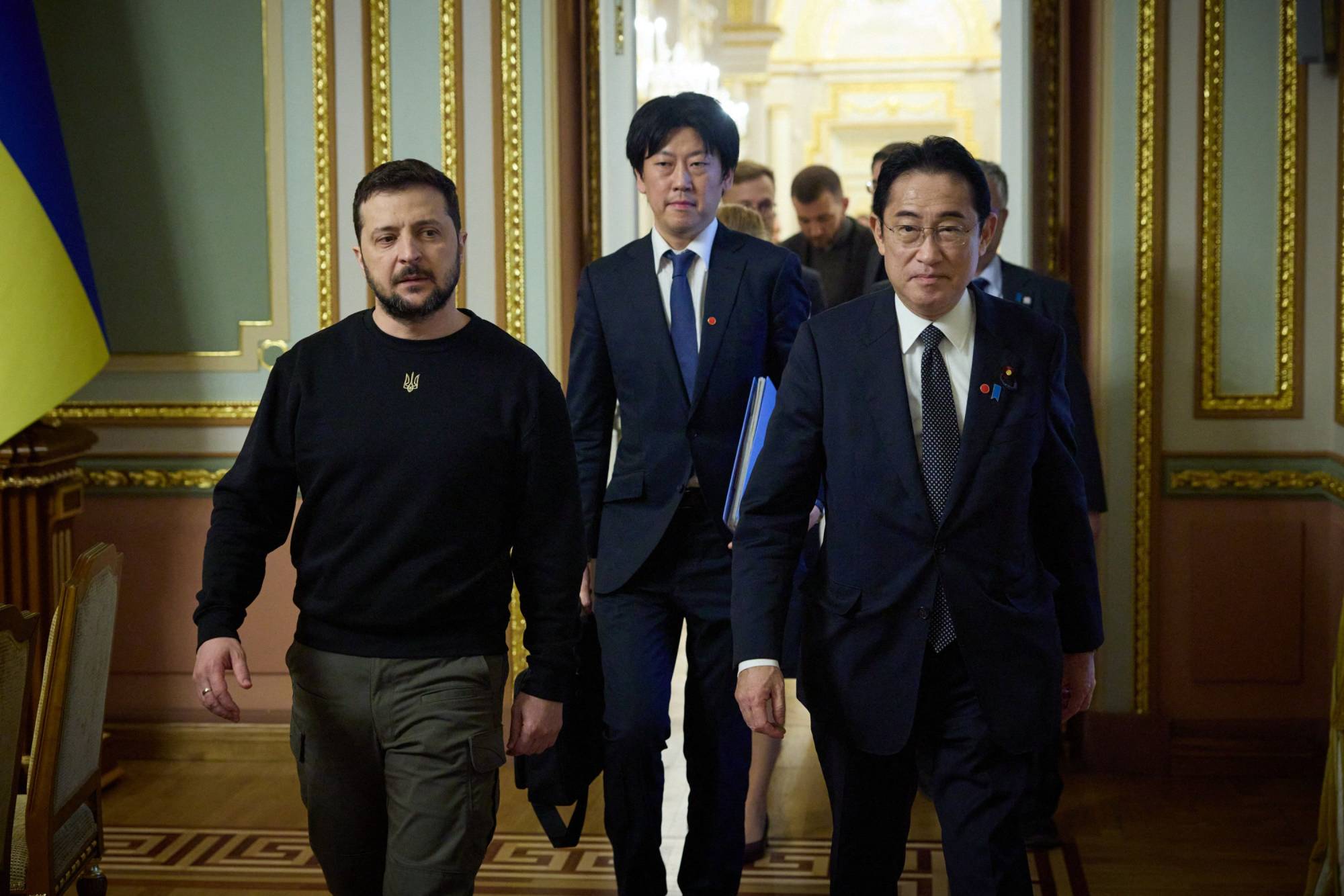As Prime Minister Fumio Kishida met with Ukrainian President Volodymyr Zelenskyy on Tuesday in a surprise visit to the war-torn country, a kind of reverse-mirror image summit — one involving the Chinese and Russian leaders on the conflict’s other side — was also unfolding more than 740 kilometers away in Moscow.
Although the two competing summits yielded few deliverables, their symbolism threw into fresh relief a growing divide between two blocs, especially as the Ukraine war continues to trigger concern among Japan and others that a similar crisis could erupt in the Indo-Pacific region.
Kishida, who will chair a Group of Seven (G7) summit in the city of Hiroshima in May, used the Kyiv meeting to not only spotlight Japan’s diplomatic chops as the sole Asian leader to visit Ukraine, but also to obliquely criticize and highlight China over its backing of Moscow and the regional consequences of that decision.



















With your current subscription plan you can comment on stories. However, before writing your first comment, please create a display name in the Profile section of your subscriber account page.